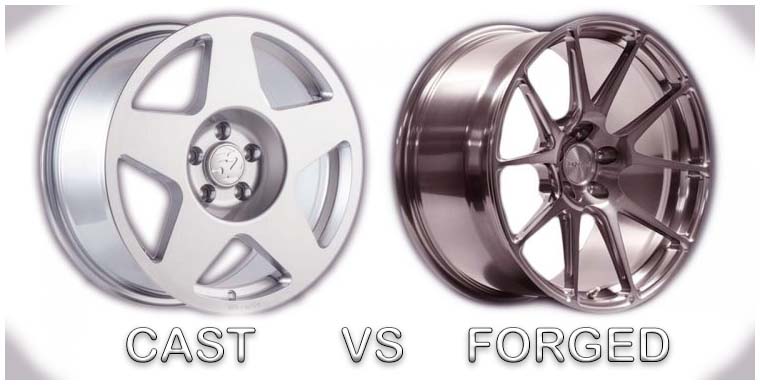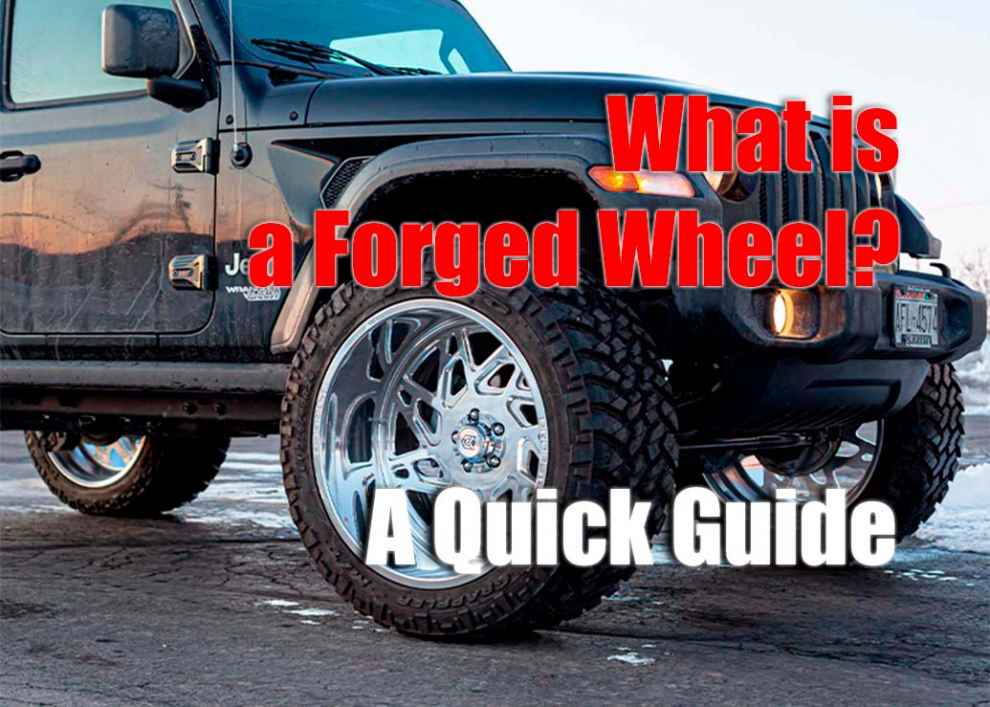If you are looking to upgrade the look and performance of your Jeep, then investing in a set of forged wheels may be the way to go. In this article, we will discuss what forged wheels are, how they are made, and the advantages that these uniquely designed wheels provide for your vehicle. By understanding the features and benefits of these specialized wheels as well as their best applications, you can decide if this is the right option for you.
What Is a Forged Wheel?
Forged wheels are manufactured using a unique process that involves taking metal bars or billets and heating them until they become malleable. The metal is then formed into a wheel shape under intense pressure before being machined down to its desired specifications and ultimately finished off with an attractive coating. This process creates an intricate network of fibers throughout the wheel that gives it superior strength when compared to other types of wheels on the market such as cast aluminum or steel rims. The resulting wheel is often lighter weight than traditional designs due to its reduced thickness while still providing superior strength, durability, and performance characteristics.
How Are Forged Wheels Made?
The forging process begins with a high-grade aluminum bar known as a billet. The billet is heated until it becomes soft and malleable, and then it is placed into a press or forging machine. Heat and pressure are then applied to the aluminum billet until it takes on its desired shape. This process can take up to several hours depending on the complexity of the wheel’s design. The resulting wheel has a unique network of fibers that give it superior strength when compared to other types of wheels on the market such as cast aluminum or steel rims.
The Difference Between Cast & Forged Wheels

Benefits of Forged Wheels
Forged wheels offer many benefits when compared to standard cast wheels. These include:
-
Strength & Durability: The process used to create forged wheels creates an intricate network of fibers within the metal that gives it superior strength overcast counterparts, allowing them to be thinner while providing greater durability against impacts, potholes, and other road hazards. Additionally, the increased strength of forged wheels makes them ideal for off-road use as well as performance vehicles running at higher speeds or under extreme conditions such as racing applications.
-
Lightweight Design: Forged wheels are often lighter than their cast counterparts due to their reduced thickness and more intricate designs which helps reduce overall vehicle weight and improve its performance characteristics. This lightweight design also helps reduce unsprung weight which increases suspension responsiveness and handling.
-
Improved Performance & Handling: As mentioned above, the lightweight design of forged wheels allows for improved performance by reducing overall vehicle mass which can help with acceleration as well as braking distances. Additionally, the reduced unsprung weight helps improve suspension response time resulting in improved cornering capability on the track or along twisty roads.
Types of Forged Wheels & Considerations
Forged wheels come in two distinct types – monoblock and multipiece designs. Monoblock wheels are machined from the same piece of metal and feature a fully forged construction. These wheels offer unmatched strength and durability and are typically used in high-performance, track-focused applications. Multipiece wheels are made from several pieces of metal welded together for increased strength and durability and can be found on commercial vehicles or as an upgrade for standard vehicles.
When selecting forged wheels, several considerations should be kept in mind such as load rating, lip size, offset, width, weight, and bolt pattern. The load rating must match the vehicle’s capacity while lip size largely determines the overall appearance of the wheel with most aftermarket designs featuring larger lips than OEM units. Offset adjusts the distance between the hub mounting surface and wheel centerline while width determines tire selection clearance as well as the overall stance of your vehicle. Weight is an important factor to consider when looking to reduce unsprung mass while bolt pattern dictates which type of lug nuts will be required to mount your new wheels onto your vehicle’s hubs. Additionally, for Jeep JK owners seeking off-road performance, it’s worth exploring beadlock wheels. The best beadlock wheels for Jeep JK provide enhanced traction, stability, and durability for off-roading adventures.
Conclusion
Forged wheels provide numerous benefits for jeep owners looking for improved performance, handling, or styling options for their vehicles. Their lightweight design reduces unsprung weight while their superior strength and durability can handle the rigors of off-road conditions. Monoblock wheels are best suited for extreme performance applications while multipiece wheels provide increased strength and durability for commercial vehicles or as a stylish upgrade to standard vehicles. When selecting forged wheels, be sure to consider their load rating, lip size, offset, width, weight, and bolt pattern to find the right fit for your Jeep.

Add Comment